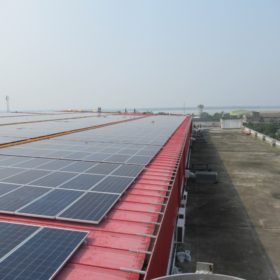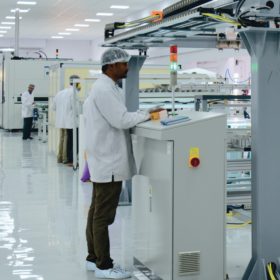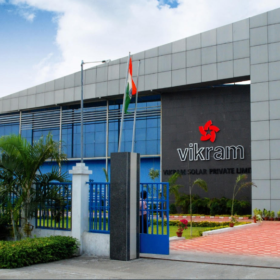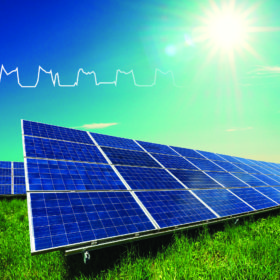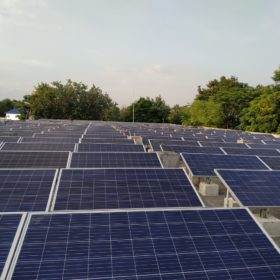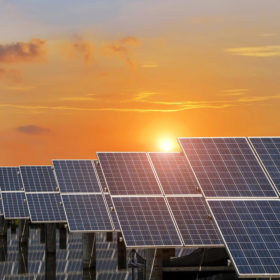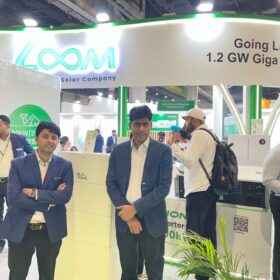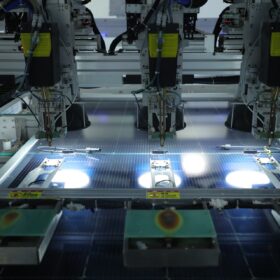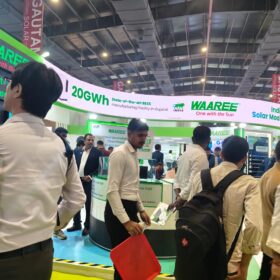Vikram Solar module factory gets a rooftop PV plant
The 919.73 kWp captive solar plant at the module manufacturer’s Falta unit in West Bengal uses multiple PV technology advancements, including its own SOMERA monocrystalline, half-cut and full-cut cell panels.
Vikram Solar plans 3 GW solar factory in Tamil Nadu
The engineering, procurement and construction services contractor – which has a 1.2 GW module production facility near Kolkata – will establish a wafer, cell and module manufacturing site in Tamil Nadu under a five-year timescale.
Legal loophole protecting imported panels from subsequent duties discriminates against Indian products, say manufacturers
Indian solar manufacturers have cried foul over a system which exempts imported panels from yet-to-be-announced tax regimes but offers no such protection to domestic products.
Solar manufacturers in SEZs say customs duty will be counterproductive
Module manufacturers in special economic zones would be at a disadvantage when selling in the domestic market as they would be required to pay basic customs duty on the value of solar modules.
Vikram Solar ranked ‘Top Performer’ module manufacturer again
The Kolkata-based manufacturer’s Somera monocrystalline silicon and Eldora polycrystalline silicon PV modules met and exceeded international quality and performance benchmarks in assessments by PV Evolution Labs.
Vikram Solar bags 300 MW solar project from NTPC
The Rs 1,750-crore project—under the second phase of Central Public Sector Undertaking scheme—is to be developed using domestically manufactured solar cells and modules.
Vikram Solar supplies modules for 300 solar pumps across West Bengal and Odisha
The government’s KUSUM scheme helps farmers install standalone solar pumps with a capacity of up to 7.5 hp. There is also support to make grid connected pumps of the same size solar powered. A PV capacity of up to twice the pump capacity in kW is allowed under the scheme.
Vikram Solar brings solar power to 3 more airports in India
The solar plants commissioned at Dibrugarh (Assam), Gaya (Bihar) and Gondia (Maharashtra) take the Kolkata based module manufacturer and EPC contractor’s cumulative airport project portfolio to more than 4 MW.
Websol Energy mulling solar manufacturing capacity expansion
The crystalline solar cells and modules manufacturer—which has 200 MW of cell line and 250 MW of module line capacity—has secured orders equal to full production capacity for both cells and modules till March 2020.
The impact of corporate tax rates cut on solar industry
The government’s move to slash corporate tax rates to 22% from 30%—and to 15% for new manufacturing companies—has largely been hailed by the solar industry even as it feels impact will be limited.
